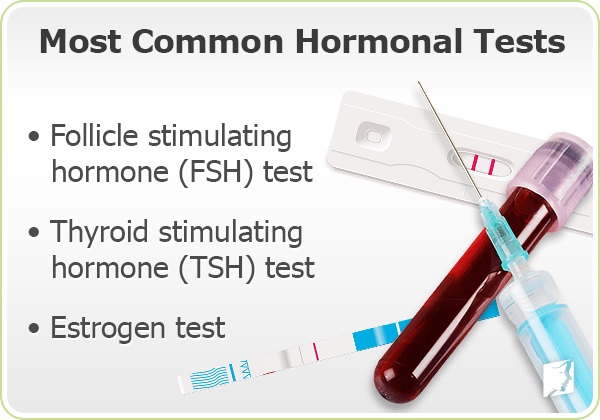
As women enter middle age, many of them will experience the second stage of the menopause process: perimenopause. In this time, the female body transitions into its non-reproductive years, with noticeable symptoms occurring.
For many women who are either experiencing this stage or will soon experience it, it is important for them to better understand what perimenopause entails, including: knowing what perimenopause is, at what age perimenopause occurs, and the different tests available to diagnose perimenopause.
What Is Perimenopause?
While many women understand the basics of menopause, fewer women recognize the signs of “perimenopause”. Perimenopause is the second menopause stage, which occurs after pre-menopause. While many women are fully fertile during pre-menopause, perimenopause signals the gradual decline of women's reproductive functions.
As a perimenopausal woman's body is preparing to permanently shut down the ovaries, this causes a natural decrease in estrogen and progesterone levels. These decreases in hormone levels are the primary cause of most perimenopause symptoms.
Perimenopause Age
There is not a set age for perimenopause to begin. However, most women report the first symptoms in their early 40s, with some women beginning perimenopause earlier or later in their lives.
In fact, some women begin perimenopause as young as their early 30s. This, however, can be indicative of early onset menopause or other potential health issues, so it is important to consult a medical professional if you are experiencing perimenopause symptoms at this age. The timeline for experiencing perimenopause symptoms can vary greatly.
For some women, perimenopause can occur for one to three years preceding menopause. For most women, however, perimenopause can last for ten years or longer. Ovarian shutdown does not happen overnight, and the body needs time to adjust to the hormonal deficit created by decrease of progesterone and estrogen production.
Perimenopause Tests
Since there is not a definite time for the onset of perimenopause, women need to be in-tune with their bodies. Paying attention to any changes and abnormalities in their bodily functions can help them discern whether or not they are experiencing perimenopause symptoms. If they suspect they are going through perimenopause, there are certain tests available that will help them know for sure.
Common Perimenopause Tests
Follicle stimulating hormone (FSH) test. Because FSH levels increase during perimenopause, a test of FSH levels can help determine if the second stage of the menopause process has begun.
Estrogen test. Usually performed over a period of several days to measure fluctuation, estrogen tests are a good way to detect the presence of perimenopause.
Thyroid stimulating hormone (TSH) test. If symptoms similar to those experienced during perimenopause are present, doctors will usually perform a thyroid stimulating hormone test to check for problems with the thyroid.

Perimenopause tests can also be useful for detecting the presence of other, perhaps more serious conditions. Since perimenopause tests are quick and easy to administer, they are the most effective way to determine if you are experiencing perimenopause.
Although perimenopause can be a difficult transition to experience, knowing more about its causes and the available treatment options can help with symptom management. Click on the following link to learn more about the causes of perimenopause.
Sources
- BMJ Group. "Menopause: What is it?" Patient Leaflet. 2007.
- Hopkins, Virginia. Lee, John R. M.D. What Your Doctor May Not Tell You About Menopause. New York: Warner Books Inc., 1996.
- Love, Susan M.D. Menopause and Hormone Book. New York: Three Rivers Press, 2003.
- Martin, Raquel. The Estrogen Alternative. Rochester, VT: Healing Arts Press, 2000.



